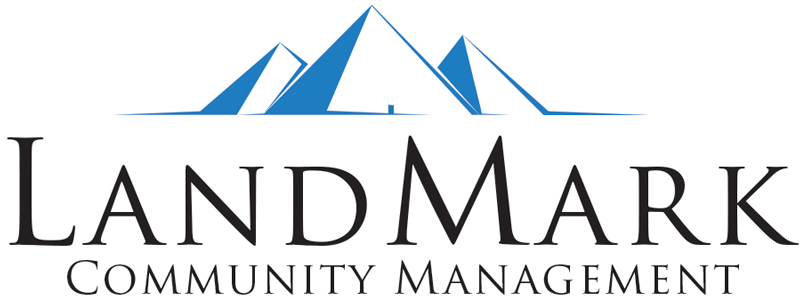Rental properties in HOA communities are more common than you think. Board members must learn to manage these properties while ensuring compliance with applicable laws and governing documents. In doing so, the association can avoid liability.
How to Handle Rental Properties in HOA Communities
Managing a homeowners association is hard enough. When you add another layer in the form of rentals, board members may find themselves at a total loss. Fortunately, some tips can help your HOA board navigate the ins and outs of rental properties in HOA communities.
1. Check Laws and Governing Documents
The first thing an HOA board should do is check state laws and the association’s governing documents. Some states have laws that prevent associations from prohibiting HOA rentals under certain conditions.
In Texas, homeowners associations can impose rental restrictions. However, such restrictions must be included in the governing documents of the HOA. Additionally, the restriction must specifically refer to rentals. A blanket provision that simply requires all homes to be used for single-family purposes does not apply, as found in the case of Tarr v. Timberwood Park Owners Ass’n.
If your HOA’s documents currently don’t restrict rentals, your board likely can’t enforce such a restriction. You can amend your CC&Rs, though that will generally require the approval of the membership.
2. Determine Permitted Rental Duration
A rental property in HOA communities can fall under one of two types: short-term and long-term.
Broadly speaking, short-term rentals are rentals that are rented out for a short period. This period may be defined by state laws or the association’s governing documents. Typically, it covers rentals that fall below 30 days. Long-term rentals are rentals that last for 30 days or more.
Many associations allow long-term rentals and favor those over their short-term counterparts. This is because there is more stability with long-term rentals. On the other hand, certain risks come with short-term rentals, such as a continuous stream of new tenants/strangers. Short-term renters are also more likely to damage property and create nuisances.
3. Establish an Application Process

Another helpful tip is for the HOA board to establish a standard rental application process. This will require homeowners to complete a form if they wish to rent out their property. Putting everything in writing creates a paper trail, which can be useful for future use or in case of legal action.
While you may be tempted to require owners to screen their tenants, state laws may not allow this practice. Texas Property Code Section 209.016, for instance, prohibits HOAs from requiring credit reports or obtaining a lease/rental application copy. Additionally, HOAs in Texas don’t have a say in who an owner can choose as a tenant.
That said, there are some details an HOA in Texas can ask for. These include the tenant’s name, mailing address, phone number, and email address. An association can also request the start and end date of the lease.
4. Place a Cap
It is common practice for an HOA to allow rentals but limit the number of rental properties in the homeowners association community. Limiting the number of rentals can help the association in many ways.
For one thing, it can prevent the community from being primarily populated by non-homeowners. An association mainly consisting of renters will have a challenging time instilling a sense of community because the residents keep changing. It will also make it more difficult for the HOA to grow and preserve property values, as tenants don’t usually stick around for a long time.
Placing a rental cap is a good way to limit the number of tenants in the association. You can either set a specific number as a limit or base it on a percentage of homes. For example, you might only allow 5% of all homes in the community to be renter-occupied. Once that limit is reached, other homeowners may no longer qualify to rent out their properties.
However, as with all other rental restrictions, this rental cap should be reflected in your governing documents. This way, there is no question that your board can enforce such a restriction.
5. Enforce Tenant Compliance
Tenants usually don’t have the same rights as a homeowner. However, they do have the same obligations. Homeowners have to follow the rules of the association. If a homeowner rents out their property to a tenant, that tenant must follow the rules, too. Tenants don’t get a pass just because they are not homeowners.
To ensure compliance, your HOA board can require homeowners to provide their tenants with a copy of the association’s governing documents. Homeowners can also sign an agreement with the HOA stating they will be accountable for their tenant’s violations. If a tenant breaks a rule which carries a fine, the homeowner will be responsible for paying that fine. The homeowner can then collect a reimbursement from the tenant on their own.
Frequently Asked Questions About HOA Rental Properties
Here are some of the most frequently asked questions about rentals in HOAs.
Can the HOA board evict a tenant?
If a tenant rents a condo with HOA, there is a good chance that the board can evict the tenant. According to Section 82.067 of the Texas Uniform Condominium Act, a condo association can amend its declaration to allow the board to evict a tenant who violates the governing documents or if the unit owner refuses to pay dues. Texas law is silent, though, when it comes to HOAs.
Can HOA charge more for rental property?
This depends on state laws and the governing documents. However, it is common for an HOA to charge a fee or a security deposit for rentals.
Texas law does not address fees on HOA rentals. As such, if an association wishes to charge an extra fee to an owner who wants to rent out their property, it may do so if the governing documents reflect it.
Do renters pay HOA fees in Texas?
Renters don’t have an obligation to pay dues to the homeowners association. That is the obligation of the homeowner. That said, the homeowner/landlord may collect money for the fees from the tenant and include it as part of the monthly rent. Thus, prospective tenants must review the terms and conditions when searching for an HOA property for rent.
Help With Rental Restrictions
There are many rental properties in HOA communities. Renting out a home is a good way for owners to earn extra income, especially if they don’t live there for most of the year. However, rentals can hurt homeowners associations. As such, it is important to manage them properly.
Landmark Community Management can help HOAs and condos with rental restrictions. Call us today at 512-569-5527 or contact us online to learn more!


